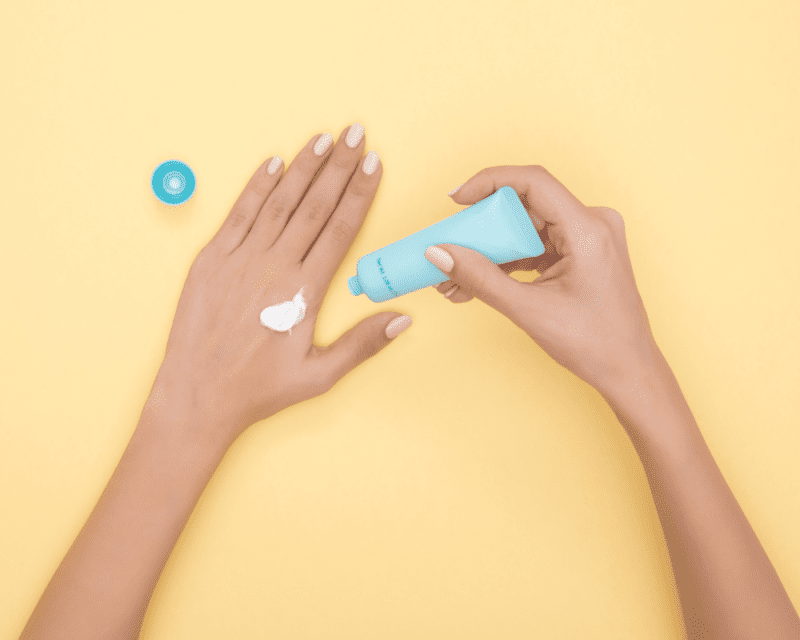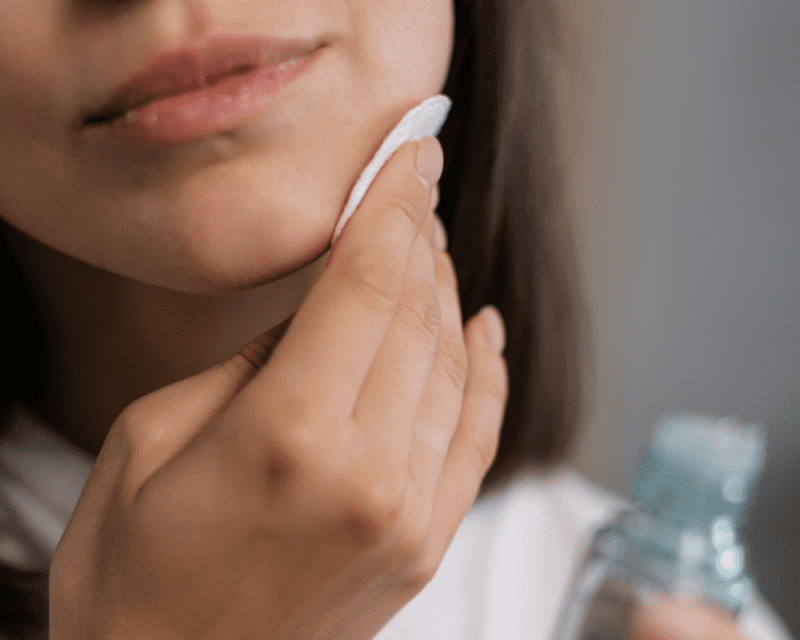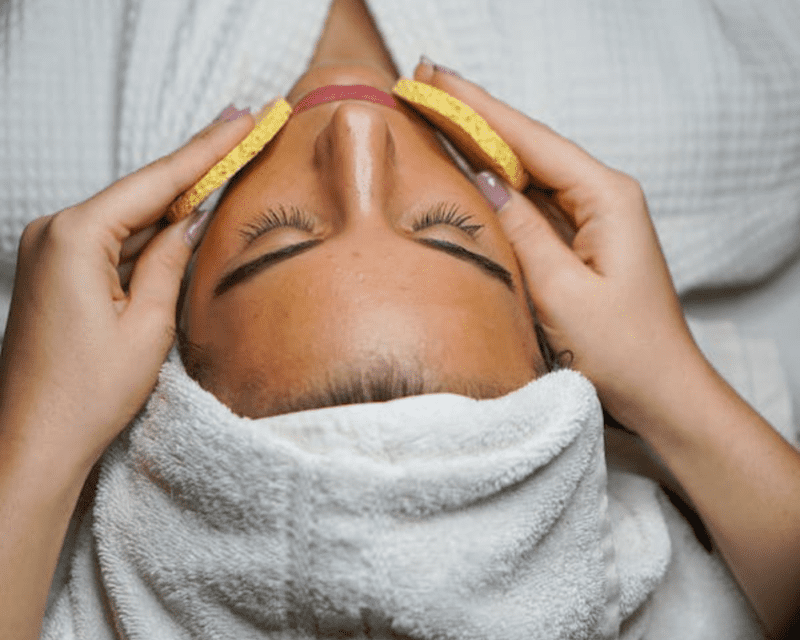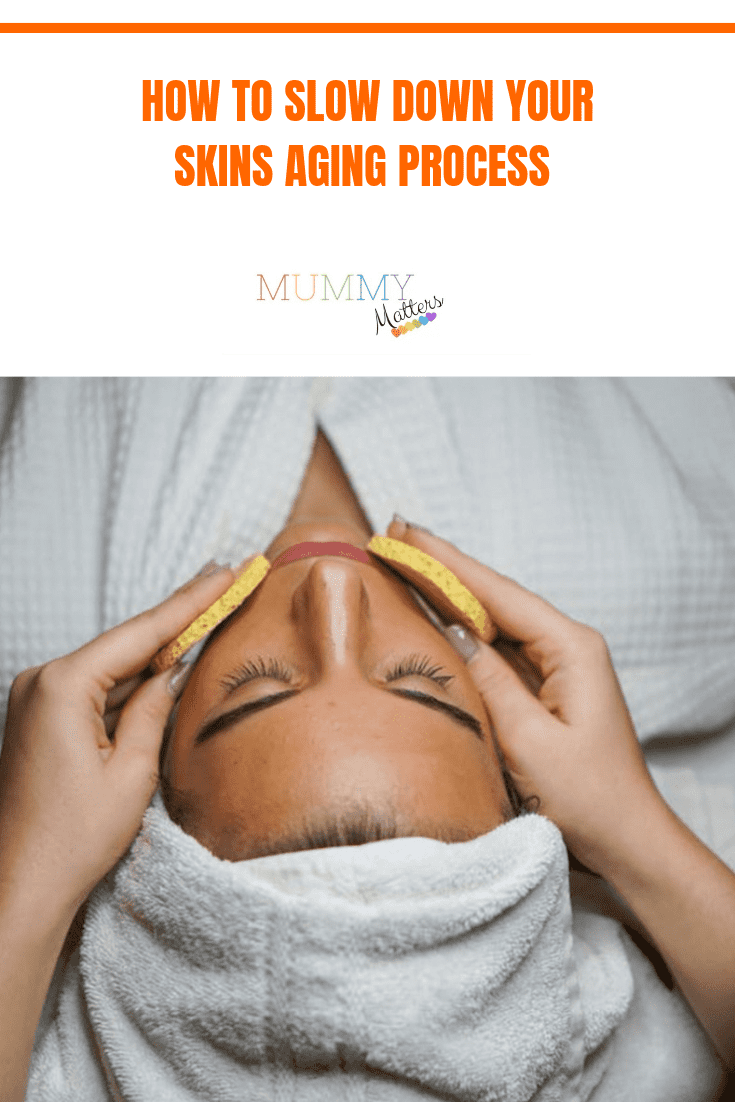As time passes, we all get visible lines on our faces and it’s only natural that our faces will lose some of their youthful looks. The natural process of aging is something we can’t change as our genes control most of it, but we can influence it to some degree by changing our environment and lifestyle.

This is called extrinsic aging; taking various preventive measures can slow down our skin’s aging process. The following tips reveal what you can do to achieve your desired results.
Always wear sunscreen

A great deal of skin aging happens due to sun exposure. Various signs, such as age spots and wrinkles, are heavily influenced by how much time you spend in the sun throughout your lifetime. The most important preventive step you can make is always to wear sunscreen, whether you’re out and about or going to work. Experts recommend sunscreen with a minimum SPF of 30 as a crucial part of your anti-aging skincare.
Improve your skincare routine

A typical skincare routine includes cleansing, exfoliating and moisturizing. A gentle cleanser is best for washing your face at the end of each day – it removes excess oils, dirt, and any damaging bacteria.
Exfoliation is beneficial for the skin as it removes dead skin cells, improves circulation to your skin, and opens up your skin for skin care products. Moisturizers lock in water in your skin, making it appear fresh and youthful. They also soften fine lines exacerbated by dry skin. As a part of your night-time skincare routine, you should use products with extra water-capturing properties, like glycerine or hyaluronic acid, as they can help prevent your skin from drying out at night.
Use wrinkle-fighting products

Another recommendation is to start using a skincare product with anti-aging ingredients, such as retinoids (stimulate collagen production), vitamin C (a natural antioxidant that boosts collagen production), vitamin E (an antioxidant that reduces inflammation), hyaluronic acid (locks moisture in), peptides (linked to the production of collagen and elastin), ceramides (reinforce your skin’s barrier), and others. Whatever products you choose, just keep them simple and affordable so you have more chances of sticking to them; for a deeper understanding of how skin ages and the processes behind it, you can find more information at BioHackersLab.
Choose your treatments

We all accept aging differently, so it’s a process that causes mixed emotions. Some signs of aging appear slowly and softly, whereas others might demand immediate attention. If you’re feeling insecure, it could be best to turn to the pros at the skin clinic in Strathfield for expert advice and assistance. This is recommended if you’ve already used various topical treatments in your 20s and 30s as your first line of defence, and now they’re no longer working.
Partly, genetics influence aging and what you do and don’t do to your skin. If you haven’t started using anti-aging skin care products in your 40s, begin now! Incorporate products with vitamin C and retinoids. These will promote collagen growth, soften wrinkles, tackle hyperpigmentation, and reduce the damage from UV rays.
In your 50s, you need to up your moisturizer game in addition to using topical treatments. You might also give dermarolling or skin needling a go. Skin needling is a treatment that uses sterile needles to create tiny “injuries” that trigger a wound-healing response which consequently stimulates new collagen and elastin production. This diminishes fine lines, deep acne scarring and wrinkles and rejuvenates the skin.
Change your lifestyle

Whatever you do to your skin to improve its appearance, to be effective, it needs to be accompanied by certain lifestyle changes. Firstly, you must stop smoking as it ages your skin prematurely, creating more wrinkles, causing droopy skin around the eyes and a dull complexion.
Also, what you eat and drink impacts your skin’s aging process. Your skin needs proper nutrition to repair and regenerate, so you should avoid alcohol, limit processed food and refined sugars, and eat plenty of antioxidant-rich foods.
Finally, give your body plenty of rest and quality sleep, but make an effort to exercise regularly as well. Exercise improves your blood circulation and boosts your immune response. Increased blood flow delivers oxygen and nutrients to your skin. Physical activity reduces stress, which can be among the major causes of certain skin conditions such as eczema and acne.
Even if you’re showing signs of premature skin aging, you can still benefit from taking these measures and making lifestyle changes. By changing your diet, protecting your skin from the sun, and using suitable products, you have a fair chance of repairing some of the damage and improving your skin’s looks.

